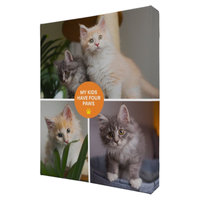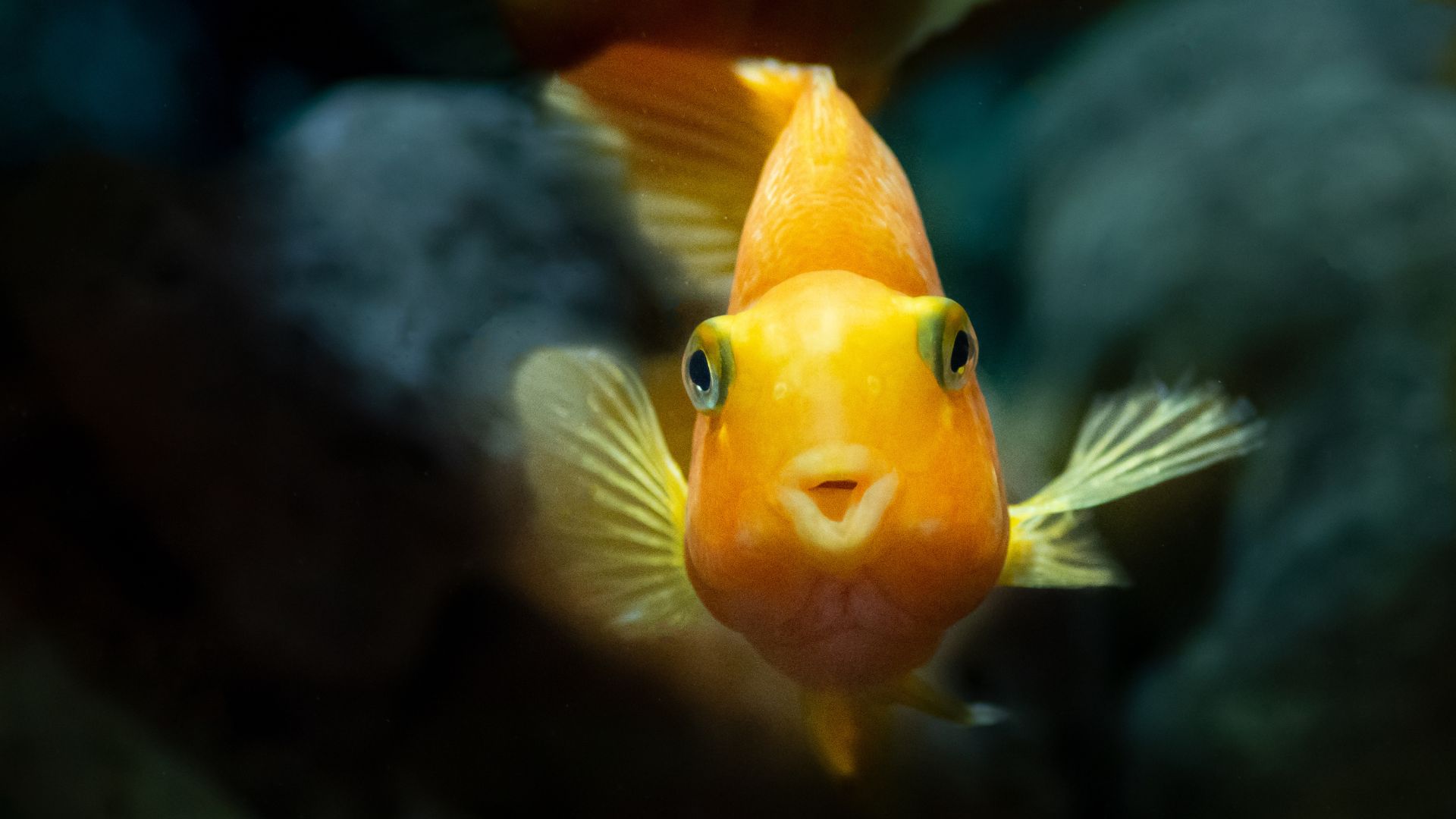Do cats think humans are cats? This is how your cat really sees you, according to an expert
‘Do cats think humans are cats?’ is a common question, so we asked an expert what your feline thinks of you.

If you’re a feline owner, then you’ve probably questioned, “Do cats think humans are cats?” at least once. We treat our fur babies like they’re our own children, so it’s only natural to wonder what they think of us.
Whether it’s providing them with the best kitten food or the best cat food, gifting them all the toys they could dream of, or giving them lots of cuddles - there’s nothing we wouldn’t do for them.
Unlike dogs who are very obvious with their affection, cats tend to be a little harder to read. For most cat parents (including myself), we’d do anything for a display of love and when we get it, it means the world to us (and requires a photoshoot to prove it happened).
We might not look the same as our feline friends, but do they still think we’re one of them? After all, we do take care of them, and in some cases, raise newborn kittens in a similar way that their mother would. We asked Amanda Campion, a clinical animal behaviorist:
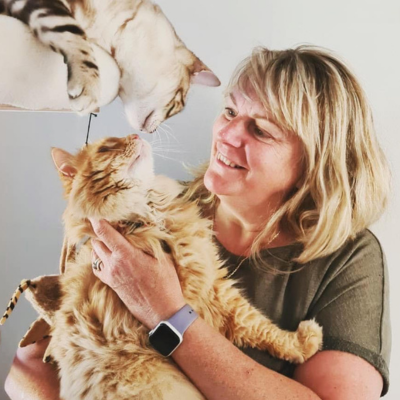
Practicing as a full clinical animal behaviorist member, Amanda's passion is cats -helping to correct all their quirky unwanted issues, anxiety, and stresses that can manifest from time to time. Amanda has worked alongside charities for many years, helping rehabilitate cats from surrender and euthanasia. She previously had her own cattery, fostering and rehabilitating traumatized shelter cats, enabling them to go in to have happy lives with their new owners. She loves engaging with the cat caregivers and deciphering what problems they are having, as well as using her detective skills to find out what the cats’ problems are. As a CAB, she assists with a wide range of feline behaviors but the most rewarding to her is to see a previously traumatized or anxious cat start to trust again which is life-changing for the cat.
What do cats think of us?
Amanda says that cats see us as a totally different species to them - but one that is part of their unique social group.
She says: “Whilst they don’t view us as clumsy, they do recognize our differences and understand that we are a separate co-species not having the same skills and attributes that they have. Cats appreciate the comfort and security provided by their human companions, but they don’t perceive us as equals or members of their species.”
You might be disappointed to hear this, but our cats don’t see us as their parental figures either. We might treat them like they’re our babies, but Amanda explains that they just see us as their “providers of food, shelter, and companionship within their chosen social group.” Heartbreaking.
PetsRadar Newsletter
Get the best advice, tips and top tech for your beloved Pets
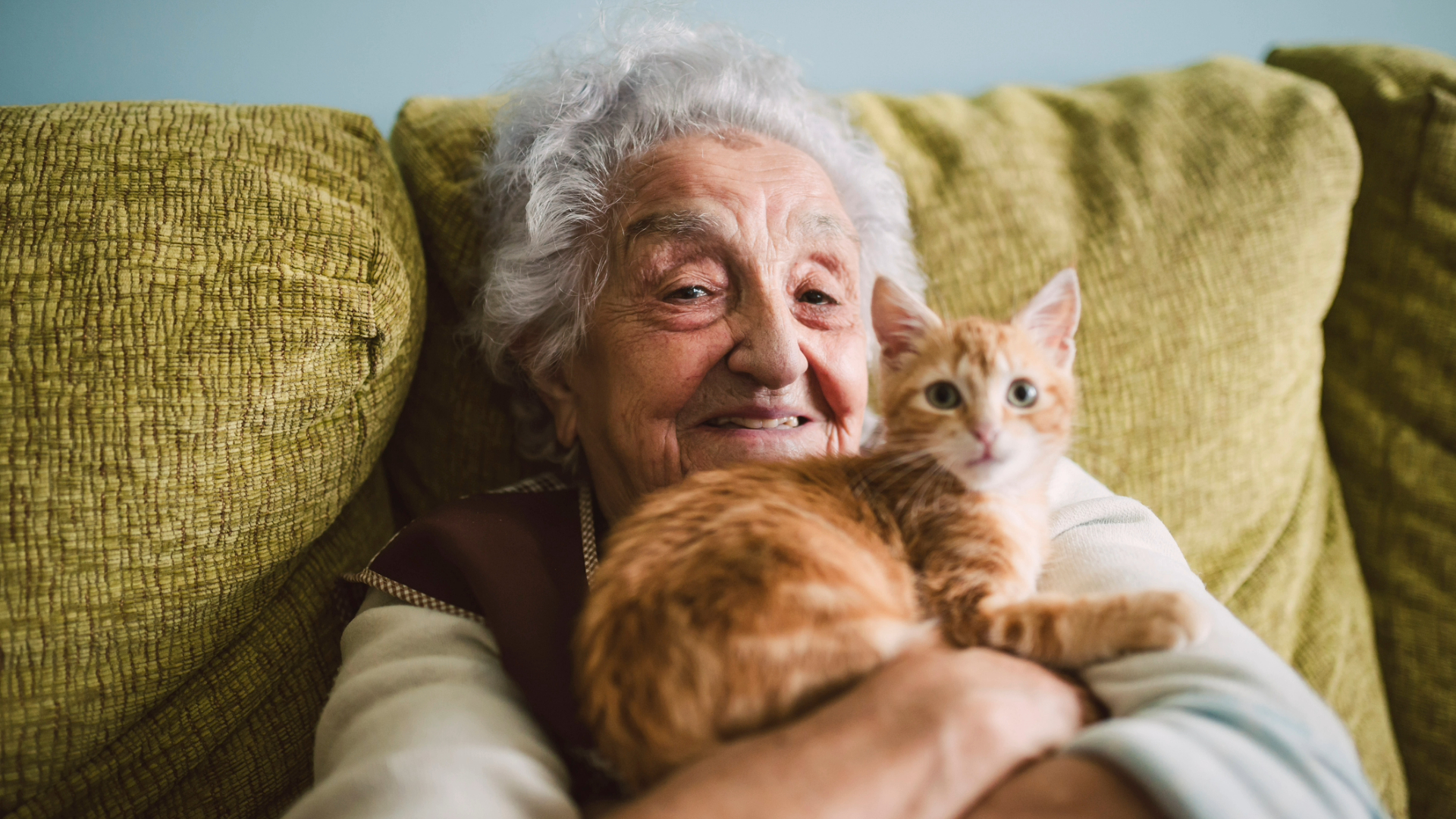
She continues: “Cats have a very complex social structure and rely on micro-communication non-verbal cues to interact with both humans and other conspecies (other cats they may come into contact with). In a feline world, socio-relationships are based on mutual respect, size, gender, and understanding of each other’s territorial boundaries.”
A common belief is that cats see themselves as smarter than humans, but this isn’t true. Amanda explains that they’re just aware of our different skills and abilities.
She also notes that cats can form close bonds with us and may have a favorite person within the family. If you’re anything like my household, then you’ll regularly have the debate of who the cat likes best. If you can't decide, this feature on how to know if your cat loves you should help to work it out.
Vital Essentials Minnows Freeze-Dried Raw Cat Treats
These minnow-flavored cat treats will certainly get you in your kitty’s good books. Containing a single protein source and a grain and gluten-free recipe, they’re great for cats with certain allergies or sensitivities.
Do cats care about our emotions?
It’s a common misconception that cats are not in tune with our emotions, but Amanda says otherwise. She explains that cats “can be very perceptive to a shift in our emotions and even smell our hormonal changes.”
She says: “Whilst they may not grasp the complexity of every human emotion, cats are extremely sensitive to changes in our mood and demeanor. Cats can pick up on subtle cues such as body language, tone of voice, and facial expressions to gauge our emotional state.
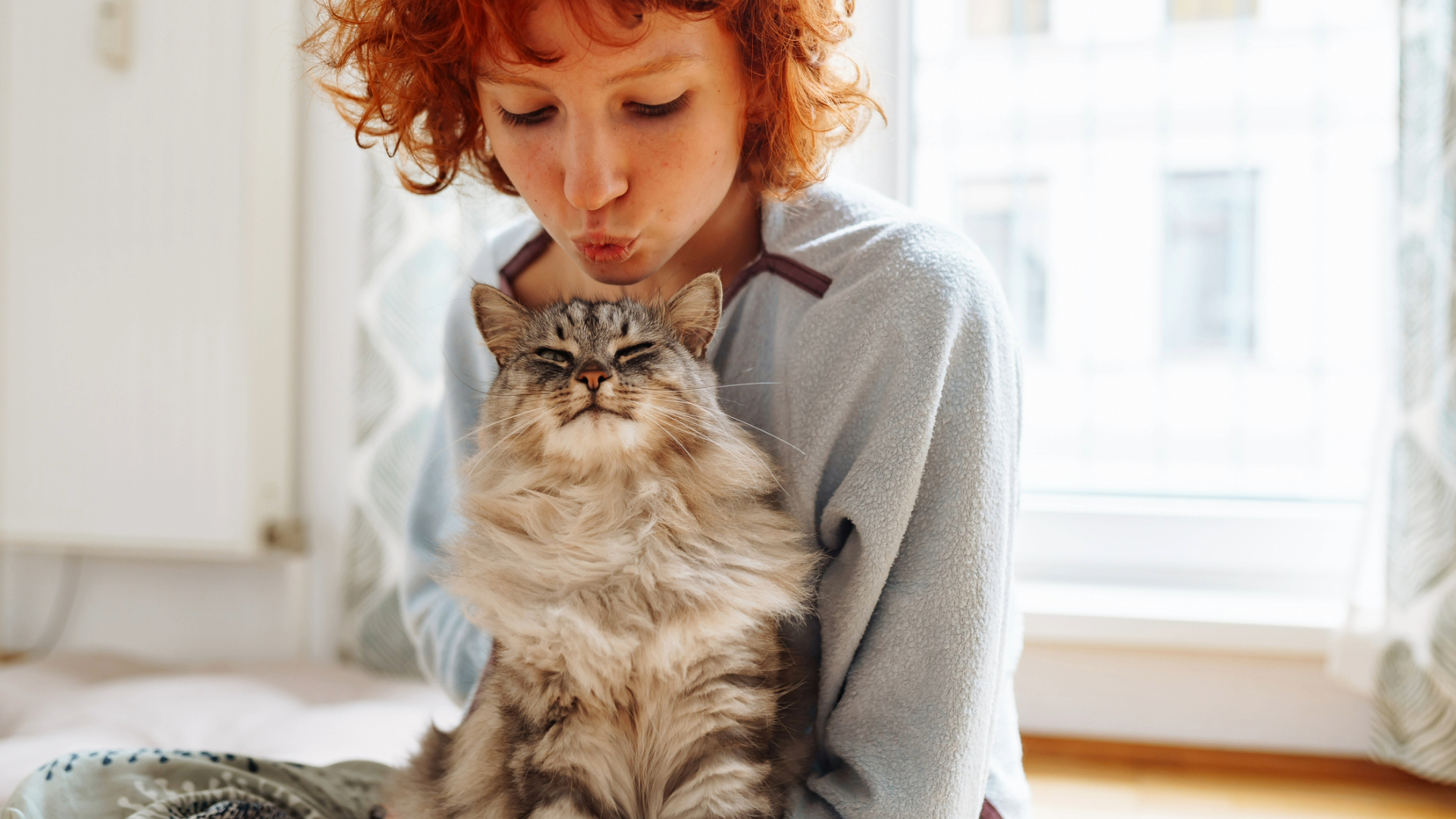
“For example, a cat may approach a person who is feeling sad or distressed, offering comfort through gentle purring, kneading, or simply by being present. Cats have a remarkable ability to provide emotional support and companionship, often intuitively offering comfort during times of stress or sadness.”
In fact, some cats (like the ragdoll) are some of the best emotional support animals.
Amanda explains that although cats don’t have the same empathy levels as humans, they can form strong relationships with us and “may display behaviors that indicate they are aware of our human emotions”. If you want to learn more, take a look at our feature on cat body language.
Frisco Contemporary Paws 8 x 10 Gallery-Wrapped Canvas
Every family member deserves a place on the wall - especially our furry ones! This canvas can be personalized with your favorite shots of your cat, as well as the text of your choice. The perfect gift or personal touch to your home.
Do cats like it when you meow at them?
If you say you’ve never meowed at your cat in an attempt to get a conversation going, you’re lying. It’s something that we’ve all tried at least once - but do they really understand it? And most importantly, do they like it?
You might think that cats primarily meow to communicate, but they actually use non-verbal cues (like body language, scent and facial expressions) more within their species, Amanda explains.
She says: “Whilst they understand certain human vocal cues and will respond to them, meowing is not a natural form of communication seen between cats. In the feline world, adult cats typically reserve vocalization for communicating with their mothers when they are kittens, or for signaling to other cats during mating or territorial disputes.”
When it comes to whether they like it or not, it all depends on the cat and how they interpret it.
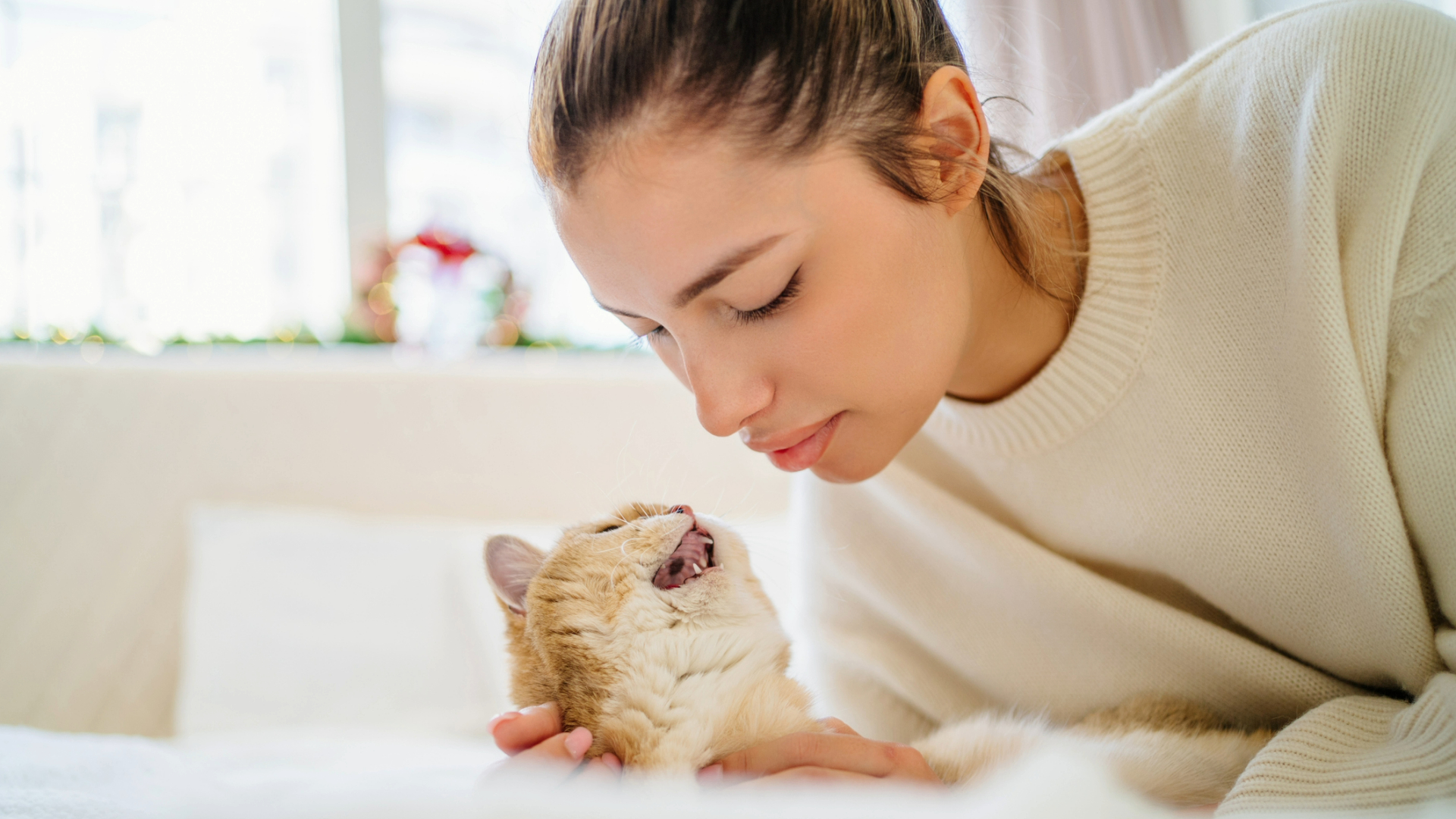
Amanda says: “On the positive side, some cats may interpret human meowing as a positive form of attention and interaction which then leads to increased engagement and bonding between the cat and their human companion. They will learn to expect certain cues from humans and recognize our communication signals in the same way that we learn to interpret theirs.”
However, she explains that it could just confuse or frustrate your cat if they’re unsure of what you’re doing. They might even see it as “unusual or out of context”, resulting in them feeling stressed or avoiding you.
Meowing at your cat might be fun, but Amanda recommends using vocal cues, body language, and positive reinforcement instead. If you want to learn more about why do cats meow, check out this feature.
Want to read more content like this? Here are 32 ways to be the best cat owner and 32 things you only know if you’re a cat owner.
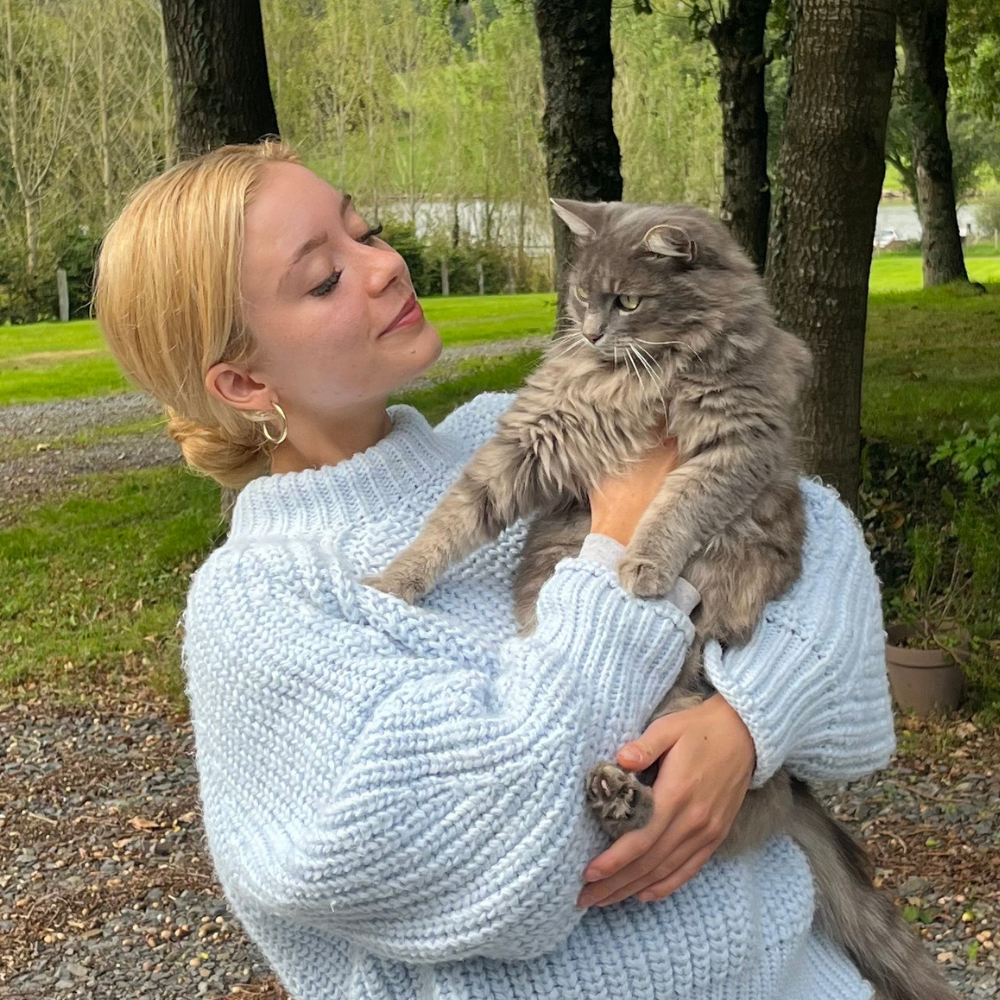
Megan is a Staff Writer at PetsRadar, covering features, reviews, deals, and buying guides. She has a wealth of experience caring for animals, having grown up with dogs, cats, horses, guinea pigs, and more throughout her life. She studied BA Journalism at the University of Westminster, where she specialized in lifestyle journalism and was editor of Smoke Radio’s lifestyle website. Megan works alongside qualified vets and accredited trainers to ensure you get the best advice possible. She is passionate about finding accurate and helpful answers to your pet-related questions.

